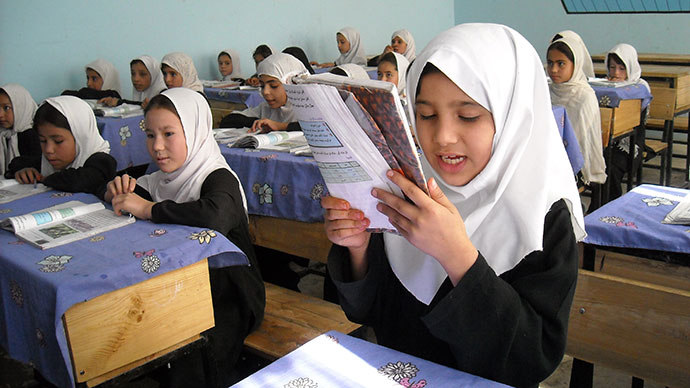International Women’s Day (IWD) began as a political movement in the United States and Europe. The first IWD was spearheaded by the Socialist Party of America and was celebrated in the U.S. on February 28, 1909. Over the years, the day evolved and gained global importance. Today, it is a national holiday in many countries and has been celebrated annually by the United Nations since 1975. This year, the theme of IWD is “Make it Happen,” which is meant to encourage effective action for recognizing and advancing women.

Photo Credit: Sahar
While much has changed in the 106 years since the first IWD, there is still an immense amount of work to be done. There are currently only ten women worldwide serving as heads of state and fifteen serving as heads of government. Women continue to participate in labor markets on an unequal basis with men. In 2013, the male employment-to-population ratio was 72.2 percent while the ratio for females was 47.1 percent. And, more than 700 million women alive today were married before their eighteenth birthday.
There are 46 Global Washington member organizations working year-round to address the challenges faced by women in communities around the world. Below are just a few examples of what Global Washington members are doing to help “make it happen” for women and girls worldwide.
Awamaki
Awamaki empowers rural Andean women with skills training, connects them to global market opportunities, and enables them to earn an income to transform their communities. Awamaki offers women training in quality control, product development and technical skills improvement. By investing in women’s skills, Awamaki empowers women to engage in the modern economy on their own terms.
Days for Girls International
Without access to proper hygiene solutions, girls can miss up to two months of school each year. Days for Girls International’s mission is to create a more dignified, free and educated world through access to lasting feminine hygiene solutions. Through the distribution of sustainable hygiene kits, Days for Girls is helping girls stay in school and working to eliminate gender disparity in education.
Landesa
Landesa strives to secure land rights for the world’s poorest people and frequently works with women living in rural communities. The organization champions women’s secure access to land and works to create effective laws that protect women’s land ownership rights. By helping women protect their land, Landesa is helping women protect their source of food, income and shelter.
Sahar
Sahar is dedicated to extending access to education for Afghan girls. Since the removal of the Taliban in 2001, millions of students have returned to school but girls are still substantially underrepresented. Sahar works by building schools, computer centers and teacher training programs utilizing local labor and community support. Wherever a new school is built, the number of women high school graduates significantly increases.
Learn more about these organizations and others on the GlobalWA Member Map. And, if you are moved to further support high-impact nonprofits based in our region, check out Seattle International Foundation’s 2015 Global Philanthropy Guide.
For more information on International Women’s Day, visit the official International Women’s Day website. To learn about women’s issues and the state of women’s rights around the globe, visit the UN Women website.